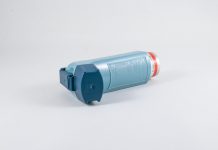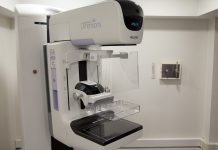EMA recalls multiple sclerosis drug from hospitals and pharmacies
The European Medicines Agency’s (EMA) Pharmacovigilance Risk Assessment Committee (PRAC) has confirmed that the multiple sclerosis drug Zinbryta has been recalled from hospitals and...
Six months of Herceptin good for women with HER2-positive breast cancer
Taking Herceptin for six months could be just as effective as taking it for 12 months in preventing relapse and death, as well as...
NICE recommends Biogen’s Avonex for multiple sclerosis
The National Institute for Heath and Care Excellence (NICE) has announced its recommendation of Biogen’s Avonex® (interferon beta-1a), which is used as an option...
New oral drug can protect cancer patients from venous thromboembolism
Taking one tablet a day could be the key to helping treat cancer patients and protect them from venous thromboembolism (VTE), according to research...
NHS funding could hinder patient’s access to drugs warns King’s Fund
A new report from The King’s Fund has revealed that NHS funding levels are not keeping pace with growth in NHS spending on medicines,...
ECDC highlights future threat of drug-resistant gonorrhoea
Following three cases of antibiotic-resistant gonorrhoea in Europe and Australia, there is concern that the growing threat of drug resistance could lead to untreatable...
Three new medicines recommended for approval
The European Medicines Agency’s (EMA) Committee for Medicinal Products for Human Use (CHMP) have recommended three new medicines for approval that will treat numerous...
Common heartburn drug linked to pneumonia in older adults
Pneumonia development in older adults has been found to have a link with the consumption of a group of certain medicines commonly used to...
Existing antiviral drugs have new uses against multiple viruses
A test of 55 antiviral drugs by the Norwegian University of Science and Technology (NTNU), has found seven compounds that show new effects against...
Women at higher risk of breast cancer opt out of tamoxifen drug
A new study funded by CRUK has found that six in seven women with a family history of breast cancer decide to not take...
Orphan medicines availability varies between European countries
A new study from the University of Eastern Finland has showed that there are differences in the availability of orphan medicines between the various...
Small amounts of antibiotics can cause antibiotic resistance
New research from Uppsala University, Sweden, has found that even low concentrations of antibiotics can cause high antibiotic resistance to develop in bacteria.
Antibiotic resistance...
Do antiepileptic drugs increase risk of Alzheimer’s and dementia?
A new study from the University of Eastern Finland and the German Center for Neurodegenerative Diseases (DZNE) has found an association between the use...
New drug helps reduce inflammation in patients in early stages of stroke
Researchers at the University of Manchester and Salford Royal NHS Foundation Trust, UK, have shown that an anti-inflammatory drug, which has been given to...
Single-pill HIV-1 treatment receives positive support
The Janssen Pharmaceutical Companies of Johnson & Johnson have announced that the Committee for Medicinal Products (CHMP) for Human Use of the European Medicines...
Siponimod drug can reduce disability progression of multiple sclerosis
New trial results revealed this week have confirmed that the drug siponimod can reduce the risk of disability progression in those with secondary progressive...
Does drug effectiveness depend on the individual?
Researchers at ETH Zurich, Switzerland, have demonstrated that there is no definitive reason as to why drug effectiveness varies between people, but rather many...
Synthetic molecule kills five types of deadly drug-resistant superbugs
The Institute of Bioengineering and Nanotechnology (IBN) of the Agency for Science, Technology and Research (A*STAR), Singapore, and IBM Research have developed a synthetic...
Increasing inhaled steroid doses not effective for severe asthma symptoms
Researchers have found that increasing the dosage of inhaled steroids when asthma symptoms are exacerbated does not effectively prevent severe flare-ups in children.
The study,...
Could a blood test predict if breast cancer drug palbociclib is helping?
A new study has found a blood test for cancer DNA which could help predict if a woman is responding to the new breast...



























